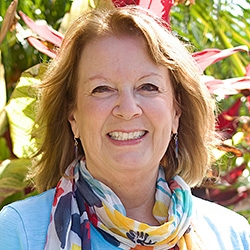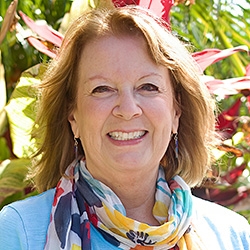
Search Results: habits
-
Listen to John answer an NVC Library member's question about what we can do when we habitually place other's needs ahead our own. Healing and change can be reached through compassionate self-connection, needs awareness, mourning and mindfulness.
-
-
Let's take a look at life-serving possibilities for changing a habit: contemplation of the benefits and costs of the habit, changing the conditions in your life to support the new habit, and taking support away from the old habit. Read on for more.
-
Most of us subject ourselves to so many painful mental jabs and they seldom stimulate helpful change. We can be like a frustrated animal trainer repeatedly whipping an animal, without ever helping the animal to understand what behavior is wanted or offering encouragement. Instead, punishing thoughts can be stepping stones to awareness. We can focus on sensing what we're really aspiring to. This is more likely to eventually produce sustainable change that'll serve us better.
-
The human species is trained and habituated towards separation. This model encourages humans to either give up on their needs or fight for their needs. In this short video, Miki shares how increasing capacity shifts habits of separation and supports holding of all needs.
-
Ask the Trainer: "I've been feeling frustrated and angry quite a bit lately over very simple things. Can you help me get to the root of my hidden needs?"
-
-
True inner freedom arises from self-connection. Without self-connection, we're mostly acting from habits, and those habits do not necessarily attend to our own needs. Here's a practice you can explore in your daily life to deepen your relationship with yourself, and experience true choice and inner freedom.
-
Trainer Tip: When looking to create healthier habits for your body, consider what needs those habits support -- such as integrity, nurturing, or love. Then consider the ways your body supports your life, and if you want to live in harmony with your body. If you make loving your body as natural as brushing your teeth or making your bed in the morning, you can bring deeper peace into your life.
-
This single-page handout illustrates the steps to translating habitual judgments and actions into observations, feelings, needs, and requests (OFNR).
-
Here's a four step exercise applying a needs-based approach to effective goals, habits and New Year's Resolutions.
-
So many of us have a habitual response of trying to eliminate uncertainty and the arrival of what we don't want. Alternatively, we can embrace the irreducible uncertainty of life. This shift from resistance and helplessness to mourning allows acceptance of outcomes, reduction of stress, and opens the door to noticing and appreciating what's present and available amidst challenges.
-
Anger can alert us that a need may be threatened. When anger lives in someone as a well-worn habit, it arises from a place of dissociation from one’s heart and is entangled with misinterpretations, a deep sense of threat, a history of pain, and social conditioning that isn’t life-serving. Read on for how intention, mindfulness, and specific actions can change that habit.
-
If you're interested in learning specifically how and what you can do to live compassionately – with plenty of hands-on practice time – this course is for you. Observe actual demonstrations of Robert guiding participants through the transformational territory of healing and integration.
-
Living Compassion, for Robert, represents the spirituality that resides in every aspect of Nonviolent Communication. Its foundational principles are represented by three primary qualities or states of being: clarity, compassion and empowerment.
In this course you’ll explore – and practice – how the unfolding of inner clarity opens your way to compassion, which further unfolds into empowerment. Throughout this unfolding process, Robert will include maps and tips for shifting your everyday life from one that is relatively limiting to a life that is both transformative, healing and liberating.
-
During this course, you'll deeply examine this process of blending and integrating your inner and outer selves. Not only will you explore various states of being, such as defensive / protective and being / essence, you'll delve into the primary levels of relationship: to others, to the world and to life, acquire tools for transforming resistance into unconditional acceptance, and much more.
-
How many times do we fall into the same hole, hit the same wall, get entangled into the same patterns? There seem to be hidden forces within us that keep unconsciously leading us, again and again, into the same melody of our lives. In this session, we will try to see our life-journey as a whole and rehabilitate our capacity to be in this existence of ours more directly and fully.
-
Trainer Tip: When have you responded in a way you didn’t want? How could you have handled that situation differently? What would have better met your needs? Try not to judge your behavior, but learn from it. Each time we review our actions, we can learn something, become more adept at new skills, and come closer to our ideal. We can do this with the learning curve of practicing translating people’s words into feelings and needs.
-
Why is it so difficult to change our patterns even when we want to, even when we experience shame or despair about them? Arnina Kashtan offers some of the common pitfalls and concrete steps to overcome them in the future.
-
So often we're habituated to associate a “why” question with being reproached, blamed or shamed – and so defensiveness arises. However, in order to maintain a flow of understanding and collaboration, we need to hear and say the “why” while finding other ways to ask for it. Here we look at how to ask questions that bring each of us vital information that can open up discovery and learning, for our mutual benefit.


















